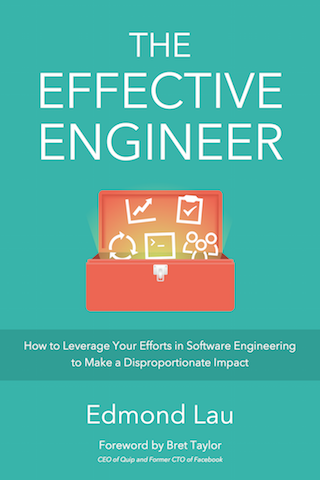How a Scientifically Proven Technique Can Improve How Well You Learn and Remember

In 2006, psychology professors Henry Roediger and Mark McDaniel uncovered some surprising insights in the science of learning. They conducted a year-and-a-half long study on 6th graders in a social studies class and split the subject material into three groups. 1 For one-third of the material, students took a multiple choice quiz for a few minutes at the beginning of class (based on the assigned reading), at the end of class (based on the teacher’s lesson), and a day before the exam for each unit. Another third of the material was simply reviewed, but not tested, during the quizzes — factual statements were interspersed throughout each quiz to remind students of key points. The last third was taught normally and not included in the quizzes. To avoid bias, the teacher was herself unaware of which material belonged to which third and stepped outside of the classroom whenever the researchers conducted each quiz.
Roediger and McDaniel then compared how the students performed on chapter exams for subject matter in the three different groups. The students actually scored an entire letter grade higher on quizzed material than on non-quizzed material. Moreover, it wasn’t just a short-term effect — the effect persisted even months later during end-of-the-year exams.
But that’s not even the surprising part.
What’s more surprising — and the part that’s relevant even to those of us no longer in the classroom — is that students performed no better on the material that was simply reviewed on the quizzes, than on material that hadn’t been included in the quizzes at all. The same investment of time spent actively taking a quiz versus passively reviewing material led to significantly different outcomes. In particular, passive re-exposure to material made no dent on long-term retention.
This study and several others 2 3 4 illustrate that being well-intentioned and budgeting time to learn isn’t enough. How we learn is just as important as whether we spend time to do it. If we’re not conscientious about the techniques we use, we might end up deceiving ourselves about how much we’re learning. Fortunately, the past decade of research into the science of learning actually shows us how to learn more effectively.
Dispelling the Illusion of Knowledge
If you’re like most people, you’ve probably embraced traditional learning techniques throughout much of your life. I certainly did. Much of my childhood education emphasized rote memorization. Even when I attended MIT, I would study hard before every test — often by reading and re-reading books, lecture notes, problems, and solutions until I felt familiar with the material. But regardless of how well I did on exams, the material that I thought I had learned — particularly for classes outside of computer science — would almost always once again seem foreign, weeks (or even sometimes days) later.
I couldn’t help but feel that all that effort was a waste of time.
Even professionally, we often engage in many activities where we cram large amounts of information into our heads only to forget nearly all of what we learned soon afterwards. We read books that purport to teach us Ruby on Rails in 24 hours. We take online courses to learn iOS programming in 31 days. We attend weekend seminars or conferences that jam tens of talks into a few days. And almost every time, we forget large swaths of what we learned within a few days.
The research tells us why. Cramming — sometimes discussed in the context of massed practice in the literature — is ineffective for long-term learning. The knowledge only gets stored temporarily in our short-term memories and never gets re-encoded in our brains as part of our long-term memories. When we passively review material, we only create an illusion of knowledge — our fluency in the material quickly increases, but so too does our forgetting of anything acquired through this method.
There is one learning technique, however, that has been empirically shown to reduce forgetting. Most of us just don’t know about it. That technique is called active retrieval.
The Power of Active Retrieval
In their book, Make It Stick, authors Peter Brown, Henry Roediger, and Mark McDaniel explain that the more effort you expend to learn something, the better you learn and retain it. When it takes effort to recall something, you’re reconstructing knowledge from long-term memory rather than retrieving it from short-term memory. While most of us regard testing as a tool for measuring our progress, the research shows that testing, also known as active retrieval, is actually an effective tool for learning as well.
When learning, you exert more effort if you give your brain some time to forget, so that you’re actively consolidating and reorganizing your knowledge in long-term memory and not just relying on short-term memory. That’s why cramming, where you spend long hours covering large amounts of material, but only exert small amounts of effort on each portion, doesn’t help long-term retention. Cramming feels productive, but it’s not.
The research corroborate these theories. In one 1978 study, a group that crammed for a test scored higher on an immediate test, but later forgot 50% of what they were previously able to recall. The other group that used active retrieval techniques forgot only 13%. 5 In another 2010 study, students who read an article and then took a test on what they had read, retained 50% more a week later than students who hadn’t been tested. The test, by forcing active retrieval of the material in the article, significantly reduced forgetting. 6
How to Apply This Research to Make Our Learning More Effective
So how can we learn more effectively? The key is to recognize that passively consuming or reviewing material is an ineffective way to learn, and to instead use learning techniques that actively engage our brains. Here are a number of strategies that we can use to leverage active retrieval and more durably encode what we learn into our long-term memories:
When reading to learn, periodically pause and recall what you’ve read. If your goal is to remember what you’ve read, convert the otherwise passive reading process into an active one. Briefly quiz yourself at the end of each chapter, and reflect on what you’ve just read. For the curious, it’s easy to want to sponge up as much knowledge as we can. But unless we take the time to practice active retrieval, most of that knowledge won’t actually stick.
Budget time to reflect and write about lessons learned. Writing forces to you to retrieve salient details from the recesses of your long-term memory and process those details into words. Blogging — sharing your writing with others — takes this a step further, as you also have to write in a way that others can easily read and understand. Perhaps not surprisingly, my own journey of writing a book in the past two years helped distill and cement many of the lessons on effective engineering that I’ve learned throughout the years.
Find ways to actively use what you’ve learned. If you’re an engineer learning a new framework, library, or programming language, write code instead of just reading through code or documentation. Make sure you have some project lined up to actively use what you’ve read. If you take an online data science course or seminar, identify some data sets you can analyze with your new skills so that you don’t forget them. If you’re learning a foreign language, set up trips or attend language exchanges where you can practice what you’ve learned.
Try solving a problem yourself before asking for help. We learn and remember more effectively ideas that we generate from our minds than the ones we simply read about. This is also known as the generation effect. Struggling with a problem on our own first can therefore have a more lasting impact. But don’t struggle for too long — knowing when to ask for help is also a valuable skill.
Explain and teach ideas to other people. If you’ve recently learned about a new mindset or framework, teach it to your friends and peers. If you’ve come up with a design, explain it to your colleagues. Doing so requires actively retrieving and formulating those ideas for other people and developing sufficient understanding to address any questions. Oftentimes, this simple act also reveals glaring holes in your understanding of how things work.
Don’t spread yourself too thin by trying to learn too much at once. Juggling too many projects means that you won’t make much progress on any particular one. Cramming too much information at once means and not investing time in active retrieval means that we won’t retain much of that knowledge. Prioritize what you want to learn, and pace yourself.
The more mental effort that you expend to learn something, the longer that learning will last. The trick lies in finding the right balance. Too little effort, and knowledge is rapidly forgotten. Too much effort, and you hit diminishing returns and could’ve spent that time and energy on other things.
But with active retrieval, at least you now know the research and the tools to make that tradeoff effectively.
Peter C. Brown, Henry L. Roediger III, and Mark A. McDaniel. Make It Stick: The Science of Successful Learning. Belknap Press (April 14, 2014), p32-35. ↩
Make It Stick, p13. ↩
Make It Stick, p34. ↩
Henry L. Roediger III, et. al. “Test-Enhanced Learning in the Classroom: Long-Term Improvements From Quizzing”. ↩
Make It Stick, p31. ↩
Henry L. Roediger, III, and Jeffrey D. Karpicke. “Test-Enhanced Learning: Taking Memory Tests Improves Long-Term Retention”, Psychological Science 17 (2006), 249-255. ↩

“A comprehensive tour of our industry's collective wisdom written with clarity.”
— Jack Heart, Engineering Manager at Asana
“Edmond managed to distill his decade of engineering experience into crystal-clear best practices.”
— Daniel Peng, Senior Staff Engineer at Google

“A comprehensive tour of our industry's collective wisdom written with clarity.”
— Jack Heart, Engineering Manager at Asana
“Edmond managed to distill his decade of engineering experience into crystal-clear best practices.”
— Daniel Peng, Senior Staff Engineer at Google


















Leave a Comment